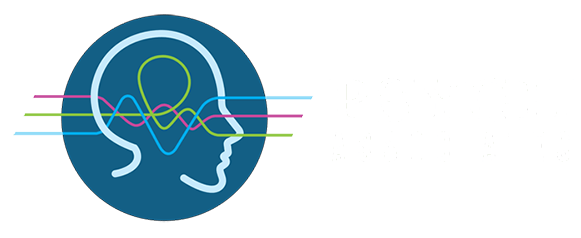 Does Your Child Show Signs of ADHD?
Does Your Child Show Signs of ADHD?
As a parent, you want the best for your child. You need them to feel supported and safe so that they can grow and mature into wonderful, beautiful adults. And you’re concerned that your child is showing signs of ADHD. Attention deficit hyperactivity disorder symptoms can be subtle until you know what to look for. If you’re concerned your child has ADHD, contact Psych Associates today to schedule an ADHD evaluation.
Why Get Your Child Tested and Evaluated for ADHD
- Bring your child’s true strengths and challenges into focus
- Get a correct diagnosis so you can support your child in the best way possible
- Discover the severity of the symptoms
- Determine how long the symptoms have been bothering your child
- Create a healthy, supportive plan moving forward based on your child’s needs
ADHD Diagnosis Can Be Complicated
You may think that your child’s life will change for the worse if they have ADHD. You want to find a way to support them, but you’re afraid of how challenging raising a child with a disorder will be. And you may feel the need to find support in therapy or through a group to transition into your role as an ADHD parent. Know that you’re not alone.
Signs of Inattention in Children
Children are natural scientists. They explore, test, and break things all the time. And it’s to discover how the world works. However, you may notice that your child is less attentive than most children or that they often lose items at home, school, or other routine life locations.
Look for these signs to determine if you may want to bring your child in for ADHD evaluation and testing:
Often has difficulty sustaining attention in tasks or play activities (e.g., has problem remaining focused during lectures, conversations, or lengthy reading).
- Often does not seem to listen when spoken to directly (e.g., the mind seems elsewhere, even without any obvious distraction).
- Often does not follow instructions and fails to finish schoolwork, chores, or duties in the workplace (e.g., starts tasks but quickly loses focus and is easily sidetracked).
- Often has difficulty organizing tasks and activities (e.g., difficulty managing sequential tasks; difficulty keeping materials and belongings in order; messy, disorganized work; has poor time management; fails to meet deadlines).
- Often avoids, dislikes, or is reluctant to engage in tasks that require sustained mental effort (e.g., schoolwork or homework; for older adolescents and adults, preparing reports, completing forms, reviewing lengthy papers).
- Often loses things necessary for tasks or activities (e.g., school materials, pencils, books, tools, wallets, keys, paperwork, eyeglasses, mobile telephones).
- Is often easily distracted by extraneous stimuli (for older adolescents and adults, it may include unrelated thoughts).
- Is often forgetful in daily activities (e.g., doing chores, running errands; for older adolescents and adults, returning calls, paying bills, keeping appointments).
Signs of Hyperactivity or Impulsivity in Children
Children love to move. They actively explore the world. Movement is a massive facilitator of exploration for them. But what happens when your child struggles with sitting still when expected to? This may be a sign that your child may have ADHD.
Here are the signs your child may be hyperactive or impulsive :
- Often fidgets with or taps hands or feet or squirms in seat.
- Often leaves the seat when remaining seated is expected (e.g., leaves their place in the classroom, in the office or other workplace, or in different situations that require staying in place).
- Often runs about or climbs in situations where it is inappropriate. (Note: In adolescents or adults, it may be limited to feeling restless.)
- Often unable to play or engage in leisure activities quietly.
- Is often “on the go,” acting as if “driven by a motor” (e.g., is unable to be or uncomfortable being still for an extended time, as in restaurants, meetings; may be experienced by others as being restless or difficult to keep up with).
- Often talks excessively.
- Often blurts out an answer before a question has been completed (e.g., completes people’s sentences; cannot wait for turn in conversation).
- Often has difficulty waiting for their turn (e.g., while waiting in line).
- Often interrupts or intrudes on others (e.g., butts into conversations, games, or activities; may start using other people’s things without asking or receiving permission; adolescents and adults may intrude into or take over what others are doing).
ADHD Evaluation and Testing Process
5.1 million children in the US (8.8% or 1 in 11) have ADHD. People with ADHD often fail to give close attention to details or make careless mistakes in schoolwork, at work, or during other activities (e.g., overlooks or misses details, work is inaccurate). Their difficulty focusing and concentrating may be due to a legitimate problem in their brain development, or they may be misdiagnosed. The symptoms of ADHD may mimic symptoms of anxiety, depression, or some other learning disability. All of these issues respond to different treatments. The only way to know the causes of your or your child’s ADHD-like symptoms is through a thorough evaluation.
If you’re concerned that your child struggles with ADHD, you may want to get them evaluated and tested. The process is straightforward and straightforward. What’s important to understand is that even if your child’s pediatrician or psychiatrist has diagnosed your child with ADHD, about 40% of children struggle with associated issues. A comprehensive ADHD evaluation and testing help uncover your whole child’s experience.
Here are the general steps in an ADHD evaluation and testing process:
- An in-depth interview and documentation of your child’s history, emotional and social struggles, academic performance, and medical history.
- Behavioral observation of your child, either in the office or in school (when feasible).
- Formal neuropsychological and cognitive testing evaluates processing speed, concentration, attention, learning, and abilities.
- Academic testing to determine the impact of ADHD on learning and memory retention.
- Behavioral, emotional, and social assessment.
- Teacher, parent/guardian, and self-interviews and/or questionnaires.
Licensed Psychologists
Our skilled psychologists and psychometricians are highly trained and experienced in diagnosing and treating all types of ADHD. We know the differences and how to find them in you or your student. Our evaluations are comprehensive and pinpoint the little details that differ between one diagnosis and another.
When you have an ADHD evaluation from Psych Associates, you’ll know your cognitive abilities, academic achievement in every area, socio-emotional health, and ability to concentrate and persist on tasks.



 Often has difficulty sustaining attention in tasks or play activities (e.g., has problem remaining focused during lectures, conversations, or lengthy reading).
Often has difficulty sustaining attention in tasks or play activities (e.g., has problem remaining focused during lectures, conversations, or lengthy reading).